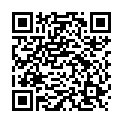|
|
|
| Module code: E916 |
|
4V (4 hours per week) |
|
5 |
| Semester: 9 |
| Mandatory course: yes |
Language of instruction:
German |
Assessment:
Written examination
[updated 12.03.2010]
|
E916 Electrical Engineering, Master, ASPO 01.10.2005
, semester 9, mandatory course
|
60 class hours (= 45 clock hours) over a 15-week period.
The total student study time is 150 hours (equivalent to 5 ECTS credits).
There are therefore 105 hours available for class preparation and follow-up work and exam preparation.
|
Recommended prerequisites (modules):
None.
|
Recommended as prerequisite for:
|
Module coordinator:
Prof. Dr. Horst Wieker |
Lecturer:
Prof. Dr. Horst Wieker
[updated 12.03.2010]
|
Learning outcomes:
This course of lectures aims to provide students with a deeper understanding of the communication networks of the future. After completing this course, students will be able to critically assess new network developments and to implement new services in existing networks to meet specified requirements.
[updated 12.03.2010]
|
Module content:
1.Introduction: Network evolution
1.1 Conventional network concepts
1.2 Telephony networks
1.3 Mobile networks
1.4 Internet
2. Quality of Service
2.1 ITU specifications
2.2 Architecture and protocols
3. The IETF architecture and its protocols
3.1 Examples of convergence
3.2 Soft switching
3.3 Private networks
4. Services
4.1 IN in the internet
4.2 Authentication, authorization and accounting
4.3 RADIUS, DIAMETER and COPS
[updated 12.03.2010]
|
Teaching methods/Media:
Video projector, blackboard
[updated 12.03.2010]
|
Recommended or required reading:
Next Generation Networks, Gerd Sigmund, Hüthig Verlag. ISBN 3-8266-5022-0
[updated 12.03.2010]
|


